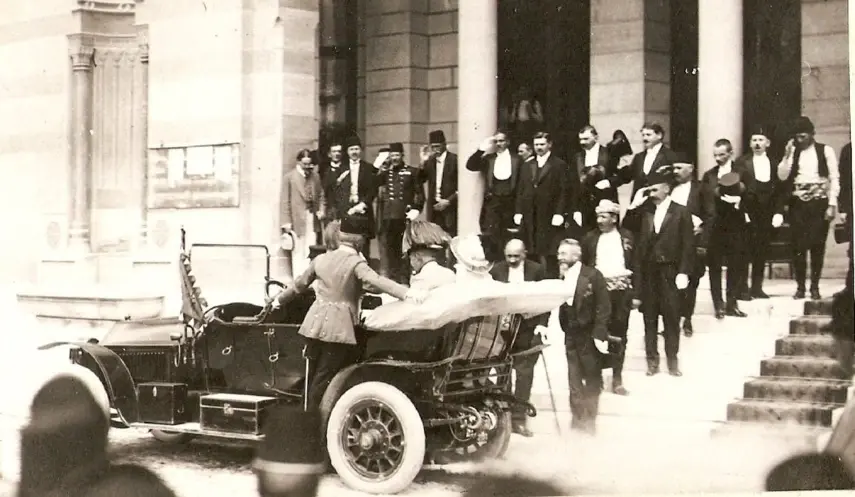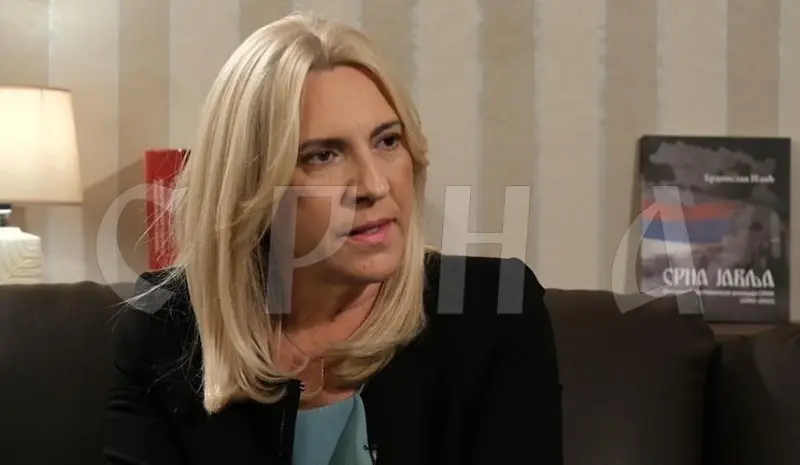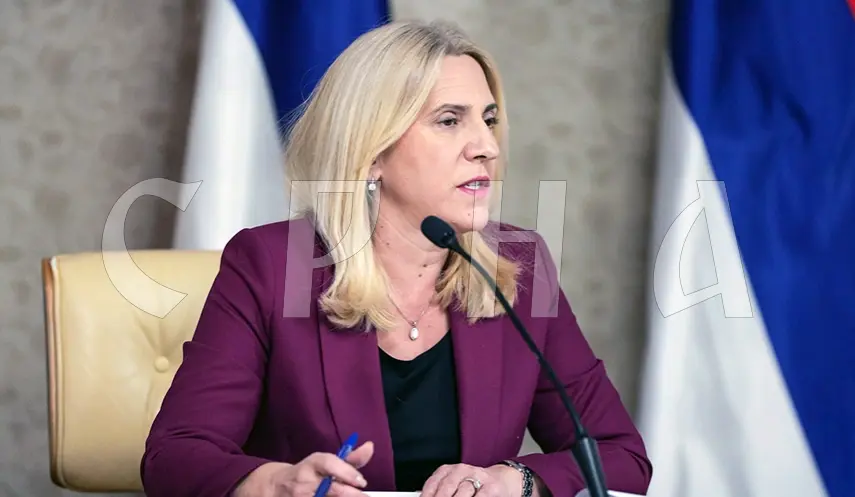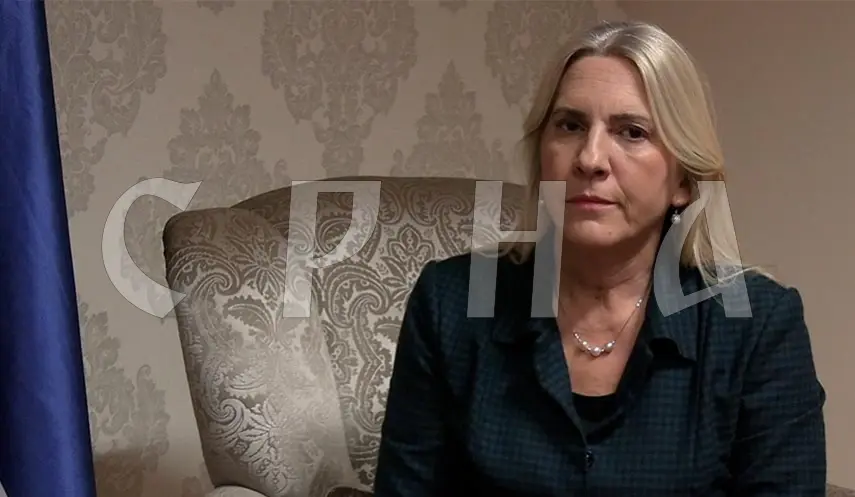THE SARAJEVO ASSASSINATION - SHOTS FIRED AT THE OCCUPIER
BiH - Vidovdan - Anniversary
06/27/2025
10:51

BIJELJINA, JUNE 27 /SRNA/ - On June 28, 1914, Gavrilo Princip, a member of Young Bosnia, carried out the assassination of Austro-Hungarian heir to the throne Archduke Franz Ferdinand in Sarajevo.
His wife, Sophie Chotek, also died as a result of accidental injuries sustained during the attack.
The Sarajevo assassination provided the Austro-Hungarian authorities with a pretext for a military invasion of Serbia, which led to the outbreak of the First World War.
Members of Young Bosnia carried out the assassination as a protest against Austro-Hungarian occupation policies and as an expression of the majority Serb population’s aspirations in BiH shared also by people of other ethnicities and faiths, for liberation and unification.
Seven individuals participated in the assassination, positioned along the route from the site where military maneuvers were being held to the City Hall.
These were: Muhamed Mehmedbašić, Vaso Čubrilović, Nedeljko Čabrinović /who threw a bomb at the motorcade, which the Archduke deflected and which exploded under the next car in the procession/, Cvjetko Popović, Danilo Ilić, Trifko Grabež, and Gavrilo Princip.
Princip and the others heard the explosion and abandoned their positions.
By a twist of fate, the car carrying Franz Ferdinand later passed by Princip, who seized the opportunity and fired his gun.
The first bullet hit Franz Ferdinand in the neck, and the second, intended for the then-Governor of BiH Oskar Potiorek, struck Sophie in the abdomen. Both died from their wounds while being transported to the governor's residence.
Princip jumped into the Miljacka River and attempted suicide with a cyanide capsule, which failed. He then tried to shoot himself, but was stopped and arrested by gendarmes.
Because of the assassination, 25 young people were brought to trial on October 12, 1914. They were tried in the staged "Sarajevo Process" from October 12 to 23, and verdicts were delivered on October 28.
Under Austro-Hungarian law, the death penalty could not be imposed on individuals under the age of twenty at the time of committing the crime. Nedeljko Čabrinović, Gavrilo Princip, and Trifko Grabež were thus sentenced to the maximum penalty of 20 years in prison, where they endured horrific torture.
Vaso Čubrilović was sentenced to 16 years, and Cvjetko Popović to 13 years in prison.
Veljko Čubrilović, Mihajlo Jovanović, and Danilo Ilić, who assisted the Young Bosnians, were executed by hanging on February 3, 1915, in Sarajevo.
Veljko Čubrilović, the oldest among them, wrote a letter to his family the night before his death. Although the original was burned by court order, a prison guard took pity and copied it before destroying the original.
His moving words, written in the face of imminent death, reflect his belief that their sacrifice was not in vain and that freedom would one day "shine on everyone," including his daughter Nada, who was only one year old at the time.
Muhamed Mehmedbašić was the only assassin who escaped Sarajevo after Gavrilo Princip's historic and heroic gunfire. He fled across the mountains to Nikšić, Montenegro.
Believing he was safe there, he began speaking of his role in the assassination. Fearing the news would reach Austria-Hungary, Montenegrin authorities imprisoned him and later secretly transferred him to Serbia. As a second lieutenant, he participated in the Serbian army’s retreat across Albania.
He returned to Sarajevo in 1919, but was arrested by the Ustasha in 1943. He suffered brutal torture in prison and died on May 29, 1943, as a result of those injuries.
Gavrilo Princip served his sentence in Theresienstadt, Czech Republic, where he died on April 28, 1918. Near the end of his life, he was severely weakened, weighing only 40 kilograms due to poor prison conditions, solitary confinement, and torture.
On the wall of the cell where he died, Princip wrote: "Our shadows will walk through Vienna, wander through the palace, and frighten the gentlemen…"
On his metal prison plate, commemorating the night before the assassination when the St. Vitus Day/Vidovdan heroes swore an oath on the grave of Young Bosnia member Bogdan Žerajić to fulfill his mission, Gavrilo engraved this verse:
"Time crawls slowly, and nothing ever changes,
Today is just like yesterday, tomorrow brings the same exchanges.
Žerajić spoke true, that grey Serbian hawk -
He who wants to live must die, he who wants to die shall live."
The remains of the "Vidovdan Heroes" were transferred and buried in a common grave in Sarajevo on July 7, 1920, and finally reinterred in the Chapel of Vidovdan Heroes at the Orthodox cemetery in the Sarajevo neighborhood of Koševo in 1939.
The Kingdom of Yugoslavia authorities placed a commemorative plaque at the site of the assassination, but occupying German and Ustasha forces removed it in 1941 and gifted it to Nazi leader Adolf Hitler.
After World War II, a new plaque was installed at the same site with the inscription: "From this place, on June 28, 1914, Gavrilo Princip fired a shot expressing the people's protest against tyranny and the centuries-old struggle of our peoples for freedom."
That plaque was destroyed with a hammer during the last war in BiH in 1992 by members of the Muslim army, along with the bronze footprints of Princip at the site of the assassination in front of the Young Bosnia Museum.
The nearby bridge in Sarajevo, named Princip Bridge in 1918, was renamed Latin Bridge by Sarajevo authorities after the war.
Gavrilo Princip's birthplace, which had been burned during World War II, was restored in 1964 and turned into a memorial museum honoring this brave young man, but it too was burned down again in 1992.
With the disappearance of Serbs from federal Sarajevo, the spirit of Young Bosnia disappeared as well.








